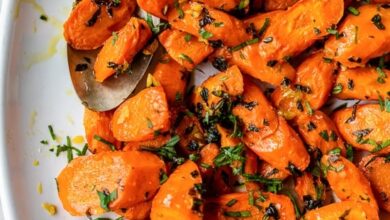How To Do An Intermittent Fasting Diet

I have been asked many times how to follow an intermittent fasting diet for weight loss and improve your health.
An intermittent fasting diet is probably the easiest diet to understand and follow. Instead of severely cutting your caloric intake or cutting out certain food groups, it merely restricts the hours in a day that you eat and when you fast.
After following the 16: 8 intermittent fasting diet for over 18 months myself, I was not surprised at how popular it seems to have become. Everywhere you look there's an article about it. Even my daughter started talking about it, so it has without a doubt hit the mainstream diet market.
It's a lot more than just the latest fad. An intermittent fasting diet is nothing new. Its roots can be traced back to many ancient religious and cultural practices. For thousands of years, fasting has been promoted as a spiritual healing practice used by religions around the world. For Muslims, the holy month of Ramadan requires night fasting from sunrise to sunset, and weekly fasting on Mondays and Thursdays is also recommended by Muhammad. Judaism fasted for 25 hours on the Day of Atonement, Yom Kippur.
“And when you fast, don't look somber like the hypocrites because they disfigure their faces so others can see their fasting. Verily I tell you, they have received their reward. But when you fast, anoint your head and wash your face so that your fast is not seen by others but by your Father who is in secret. And your father, who sees in secret, will reward you. "
Matthew 6: 16-18
Fasting is one of the most effective diet measures for weight loss, but it has been completely ignored in the diet world for so long. However, I believe that there is nothing like it because an intermittent fasting diet benefits people physically, emotionally, and spiritually.
My chosen form of intermittent fasting diet is known as 16: 8. This is a form of temporary feeding that only requires eating a few hours a day – say between 10 a.m. and 6 p.m. – which allows the body to take a long break from food each night and reinforce beneficial circadian rhythms.
"Those who eat until they are sick have to fast until they are well."
English proverb
You fast for 16 hours. This gives you an 8-hour "meal window" (e.g. 9 am-5pm, 11 am-7pm, 1 pm-9pm). With the 16: 8 Intermittent Fasting Diet, the eating window can be tailored to suit a person's lifestyle and preferences, making it a realistic approach for many.
If you finish eating at 8 p.m. in the evening, your first high-calorie meal or drink should be consumed the next day at 12 p.m. the next day.
I finish eating at 7 p.m. and then don't consume anything until 11 a.m. the next morning. But how difficult is that when you consider that I will sleep 7 to 8 of these hours. When I'm awake, I can drink water, green tea, or black coffee. Nothing with calories. Then I have an eight-hour window to eat. Generally speaking, it's from 11am to 7pm for me.
Choose the best start time for you. Try to keep this time for at least the first month.
At this point let me add that women have a more difficult period of prolonged fasting, so many women adjust this schedule to include a quick 14-15 hour period instead of the recommended 16 hours.
This fasting period means not consuming any calories. No food or even caloric drinks. During Lent, you can drink as much water as you like, black coffee, and various calorie-free herbal teas. No milk!
BENEFITS OF A NEARLY DIET
There are so many benefits to intermittent fasting.
Intermittent fasting has been shown to:
• Elevated testosterone;
• Lower bad cholesterol;
• Reduce blood triglycerides.
• promoting weight loss;
• lower blood pressure;
• Slow down the aging process;
• improving blood sugar levels;
• decrease inflammation;
• increase in human growth hormone (HGH) in men;
• Reduce the risk of chronic diseases.
• Improve disturbing skin conditions
• May extend service life.
In addition to having powerful benefits for longevity, weight loss, cardiovascular disease, diabetes, and neurodegenerative diseases, intermittent fasting has wonderful gut benefits.
It gives the body a break from digestive activity, which was not allowed due to our normal modern eating habits that force the body to work non-stop. The effects of years of poor diet can be reversed in just 7 days of intermittent fasting.
“Fasting is the first principle of medicine. Fast and see the power of the Spirit reveal itself. "
Rumi
SKIP BREAKFAST
Although I have been preaching the message of having "breakfast like a king, lunch like a prince, and dinner like a poor" as a PE teacher for many years, I've now learned that there are many benefits to not having breakfast.
Missing breakfast gives you more time to chew, digest, assimilate, and eliminate foods already in your system rather than stressing your body within a short period of time after waking up.
An intermittent fasting diet shifts your body from burning sugar to burning fat for its main fuel, which can lead to a truly amazing health change.
WHAT DO YOU EAT DURING THE DINING WINDOW?
Many so-called pros say that in general you can eat whatever you want within your 8-hour meal window. I say this is dangerous and terrible advice. Sticking to the principles of healthy eating will increase results far more. I am a healthy eating advocate and make healthy choices when it comes to eating.
You need to avoid the temptation to load up on junk food, sugar, and processed products during your feeding period. Eat fresh vegetables and fruits, and make sure to eat lots of protein to keep your energy levels high.
My main meal is always the one before the fast begins. But it's always healthy. I suggest eating no more than 2,000 calories for men or 1,500 for women.
When you want to lose weight, you can never forget that you need fewer calories than you metabolize. I recommend that you omit any processed foods that are high in processed salt and low in potassium and other essential nutrients, and eat whole foods that are ideally organically grown and locally grown to ensure optimal nutrient levels.
Provide intermittent fasting
You can fight the first few days. Hunger pangs can try to get you to eat earlier than you should. Not! Typically, your body will react and adapt in no more than three days, and you will no longer feel hungry during Lent. In fact, you don't think about food at all and you need to remember to eat at the right time. Essentially, your body now “eats” its own fat for breakfast, lunch and dinner and is no longer hungry.
So take a week and it won't just be easy, I guarantee you will notice big changes. Like more energy, better concentration, more intense focus on the things you are doing.
ALSO EXERCISE
Those of you looking at this for weight loss assure you that it is great, but you will get massive benefit from combining it with exercise. I highly recommend getting a workout at the end of your non-eating period. Your body generally uses stored carbohydrates in the form of glycogen to propel you through your workouts.
During a fast, when your glycogen reserves are depleted, your body will be forced to turn to other sources of energy in order to get fuel-like fat. You will find that your exercise performance improves.
PLAY IT SAFE
I firmly believe in playing it safe. So some of you will be concerned about a lack of vitamins and nutrients. I therefore recommend taking a multivitamin supplement. You will not feel any pain!
An intermittent fasted diet can have a dramatic effect on your daily metabolism. Do not fast without talking to your doctor if you are pregnant or feel unwell.
I'm not a doctor, just once the owner of a chain of gyms, a life coach, and someone whose life has been changed by intermittent fasting.
What is your experience of fasting? Do you have any questions that are not answered above? Please leave a comment below and I will reply to it.
“The light of the world will shine in you as you fast and purify yourself. "
Mahatma Gandhi
Tired of thinking that there is no way out of your current illness and need to find a solution to overcome illness or just be full of energy again with a lot of getting up and walking? Check out my information on health coaching
Achieve your path to good health with our healthy lifestyle plan
Achieve your path to good health with our Healthy Lifestyle Plan and Unique Weekly 70 Point Scorecard!



